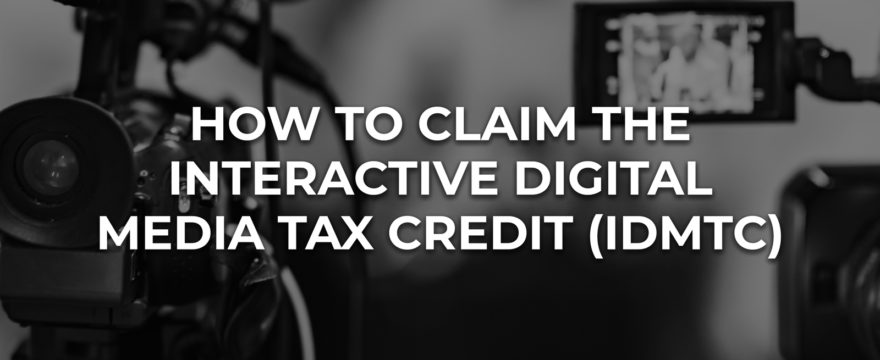
Provided by many of the Canadian Provincial Governments, the Interactive Digital Media Tax Credit (IDMTC) is an opportunity for companies and startups to strengthen their positions in the digital media industry. It serves as an incentive for companies to innovate, much like the Scientific Research and Experimental Development (SR&ED) program. These two programs differ in their requirements and many companies that don’t qualify for the SR&ED program may qualify for the IDMTC.
Each province that offers the IDMTC has its own specific mandates for the program. Taking advantage of this generous credit can help ensure digital media and software companies thrive as they work toward developing education and entertainment products that benefit Canadians and consumers around the globe.
Where Is This Tax Credit Offered In Canada?
If you’re a Canadian gaming, animation, or film-making company, there’s a good chance you’re based in an eligible location. While several provinces offer tax credits for digital media projects, the specifics of this benefit are highly dependent on where your company is based. According to the Canada Revenue Agency (CRA), this tax is available in several provinces, such as:
- British Columbia
- Ontario
- Newfoundland and Labrador
- Quebec
- Nova Scotia
- Manitoba
Each province has individual guidelines and timelines for companies to follow in order to claim this credit. Furthermore, they each outline the specifics of what projects qualify for this credit. Whether you’re developing video games, educational software, or AR/VR products, eligible projects may include those that:
- Primarily educate, inform, or entertain the user
- Can present information in a combination of text, sound, and images
- Are intended to be used interactively by individuals
Conversely, these guidelines also outline which types of digital media are excluded from this program. Common exclusions for the areas listed above consist of:
- Blogs
- Search engines
- News and public affairs products
- Weather or financial market reporting products
- Products used to market or promote an entity, product, or idea
- Products used primarily for interpersonal communication
Researching your proposal’s eligibility via provincial websites or with the help of a professional can ensure that you’re on the path that will likely lead to a refund. What’s more, your province may have modified application deadlines to account for the challenges of the 2020 COVID-19 pandemic.
How Much Could I Receive?
Depending on the project, it may meet eligibility requirements for both the SR&ED and IDMTC programs. However, it’s unlikely you’ll be able to receive both benefits for the same project. For example, the Government of Canada website explicitly states that companies in British Columbia are unable to claim IDMTC credit if they’ve already claimed BC SR&ED credit for the year.
Tax credit amounts for the IDMTC program vary by province and certain limits apply. A generalized outline of how the tax credit is calculated per region is as follows:
- British Columbia: 17.5% of eligible salary and wages incurred in the tax year
- Ontario: 40% of expenditures, including marketing and distribution expenditures, or 35% of expenditures for products developed under a fee-for-service arrangement
- Newfoundland and Labrador: 40% of qualifying expenditures, which include eligible salaries and 65% of eligible remuneration
- Quebec: 37.5% of eligible labor expenditures
- Nova Scotia: The lesser of 50% of qualifying expenditures or 25% of total expenditures, plus a bonus credit of 10% (qualifying) or 5% (total) expenditures is also available
- Manitoba: 40% of eligible project costs or 35% of eligible labor costs for the year
Capital Financing for Digital Media Projects
If your digital media or software company is creating educational and entertainment products in Canada, you may be eligible to receive a significant amount for your efforts. This capital could cover subcontractor fees, salaries, consumables, and more, playing a vital role in the growth of your company. However, waiting for tax credits can take time. If you need fast access to capital for your budget, Easly can help.
Learn more about financing with Easly and how you can receive a quarterly advance in as little as 72 hours after a successful application. Easly’s Capital-as-a-Service (CaaS) platform makes it simple to access the funds needed to continue developing new products and services.
.png)
.png)
.png)
